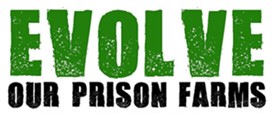It’s not clear what animals will occupy prison farm barns
A recent press release indicated the goat part of the project would be put on hold
[click to view original article]

BY IAN CUMMING Ontario Farmer
August 24, 2021
The May 5, 2021 five-paragraph press release from Correctional Service Canada (CSC) waited until the fourth paragraph to drop its most profound news item.
“Due to the unplanned financial challenges to address the global COVID-19 pandemic across the organization, CSC has decided to focus its dairy operations on the dairy cow program and temporarily pause the implementation of the dairy goat program.”
“The dairy goat program will resume once the effects of the COVID-19 pandemic can be fully assessed.”
The press release also stated they would proceed with the “construction of a new barn at Joyceville Institution.”
With no barn being constructed as yet, it is unclear whether the plans were proceeding for a 60-cow dairy cow herd and 2,200 milking goats to be under the same roof, a barn plan approved by then Minister Ralph Goodale a couple of years earlier.
The barn plans, according to other documentation obtained by Ontario Farmer, are now supposed to be 100,000 square feet, rather than the original 45,000 square feet that had been previously cited.
Ontario Farmer recently received over 500 documents concerning the prison farms under an Access to Information request to the federal government. While the goat milking herd proposal from the government had always been rumoured to be linked to the nearby Chinese-owned Feihe plant and its desire to buy, process and export goat milk, the documentation exists that this was the plan.
On Nov. 10, 2017, at a Pen Farm Herd Co-op meeting, minutes of the meeting state that Dianne Dowling – who sat on the government-appointed panel to advise them on the prison farm – was asked whether the Chinese plant would be competition on the Canadian market.
Her answer was that Feihe was going to manufacture “baby formula that will be exported to China; so no.”
On June 22, 2019, local MP Mark Gerretsen is quoted in the Kingstonist publication that there was “an opportunity for the correctional institution to play a role” in Feihe’s operation, stating that with what the Feihe plant would process, “less than one per cent of the goat milk would be coming from Corrections Canada.”
A month earlier, on May 2, 2019, neighbouring MP Scott Reid had submitted a series of questions to CSC. Among them he asked for information on “any contracts or relationships with Feihe International or Feihe Canada Royal Milk” that involved the local prison farms.
What Reid had been made aware of was that Canada was a signee to an international agreement to not allow any imports into their country, made whole or in part by prison labour.
Reid’s questions resulted in dozens of internal emails among government officials as to how to answer his queries.
Even before COVID hit, the CSC officials operating the prison farms had used their allocated budget. There was $1,351,981 spent on field equipment for a few hundred acres. Staff salaries and benefits were $502,930.31.
Consultants cost $39,788, with $31,127 spent on travel.
There were the normal farm expenses of seed, fertilizer and spray for a few hundred acres.
In 2019 there was $238,287 spent to renovate the old barn at Joyceville and $325,317 spent at Collins Bay on a couple of grain bins and to renovate an old shed.
In June 2019 CSC had dozens of emails organizing a media blitz of “approved media lines” around the fact that they had purchased six open heifers.
Kelly Hartle from CSC stated that they would “buckle up” the narrative to make it easy for the media.
CBC, TVO, Global and leading print publications all sought access to the prison farms, plus submitted prior questions and timelines for CSC pre-approval.
One leading publication promised a “good news CSC story.” The CBC promised to “highlight the benefits of the prison farm programs.”
